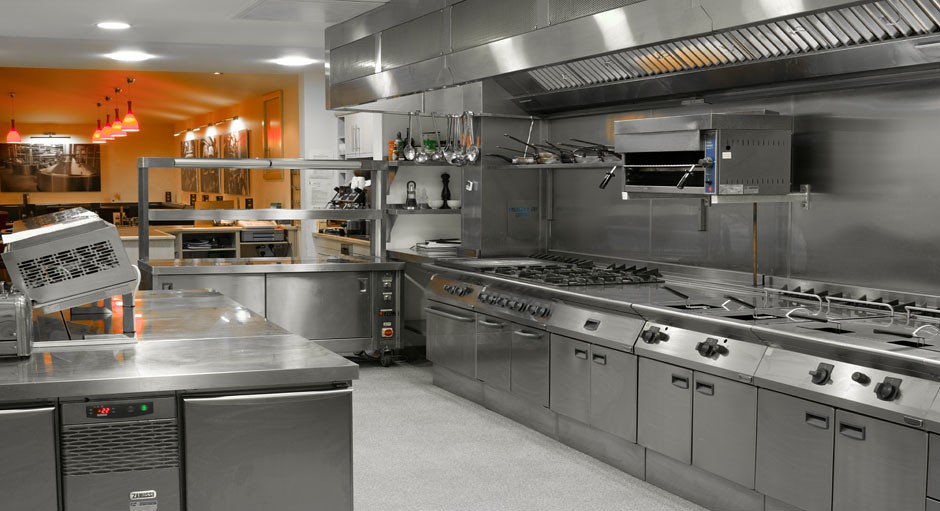Commercial kitchens are gaining prominence more than ever before, and the role played by them in the operation of chain restaurants and hotels and industrial canteens is indispensable. Also, the number of food startups mushrooming everyday in India and the rest of the world is simply staggering. Two reasons attributed to the growth of the food startups is the innovative use of technology in developing delivery apps, and the deployment of central kitchens in their day-to-day operation.
Because most food startups operate everyday on a shared rental-basis with central kitchens, they are able to scale up easily, and also achieve economy of operation even on a shoe-string budget. Building a commercial kitchen from scratch is capital-and labour intensive. That is why an increasing number of food startups are happy to operate out of central kitchens giving them the elasticity and adaptability required in a highly dynamic business environment. This means increased focus on their core operational areas instead of putting all eggs in one basket, viewed as the biggest advantage.
Advantages of central kitchen:
Before we deal with the subject in hand, we need to discuss the advantages of central kitchen:
Technology:
Most large F & B businesses wouldn’t mind investing in central kitchens as most everyday processes are automated for 100% efficiency. If ERP systems are integrated into the overall set-up, every process can be easily monitored, recorded and optimized to high performance levels. Many processes including baking, freezing, grilling, etc require optimal temperatures and conditions in commercial kitchens. And when you expect investments to be quite huge, the returns will pay off handsomely over the long haul.
Cost reduction:
Cost reduction in the food industry requires a well thought-out effort as no compromise should be made in the quality of food, and consistency of taste and flavour. Because commercial kitchens can optimize almost all key processes, cost reduction can be achieved significantly. This also means food waste can be effectively controlled. For a restaurant it is about reworking the entire workflow into a central set-up, ascertaining change management plans that enable routine operation even throughout the entire transition.
Commercial Kitchen Equipment for today’s kitchen:
Today’s central kitchens, as well as commercial kitchens, are powered by heavy-duty kitchen equipment for optimal performance. Typically, a commercial kitchen comprises several processes including pre-preparation, food processing, quick service, baking, cooking, meat-preparation, dish and ware washing. Commercial kitchen equipment is employed in a variety of applications in hotels & restaurants, catering companies, hospital kitchens, bakery, industrial canteens, institutions, QSR chains, RTE and RTC.
Commercial kitchen equipment, based on the various processes and applications mentioned above, can fall into any one of the product types: bakery equipment, food processing equipment, cooking equipment, fryers, vegetable processing machine, chapati machine, ovens, cooking mixer, meat processing machines, masala grinders, toasters and holding cabinets, dishwasher, juice and coffee machines, rotisseries and multisseries, griddles & kebab machines and more.
Any commercial kitchen equipment manufacturer would ideally look for sturdy kitchen machine construction preferably of superior-grade Stainless Steel (SS) construction. It is extremely durable for long-lasting use and hygienic as it exhibits anti-corrosion or anti-rusting characteristics. Most of these commercial kitchen machines, including food processing equipment, come with in-built displays for greater performance.
Designed to save up on time and valuable resources, commercial kitchen equipment is designed to shorten the food production cycle through lean systems. By this, the actual overhead cost per staff is significantly reduced. This will improve the productivity, and in turn the bottom-line of the restaurant or hotel.
Here, looking for the right food processing equipment manufacturer holds the key to the success of a commercial kitchen; check out the level of customer service post installation and configuration offered by the manufacturer as part of the service agreement.
Author Bio:
Shameer.S is a seasoned content writer in the area of commercial kitchen equipment technology including Cook Wok, entrepreneurship, startup business and a vivacious vocalist when he is in his element.

